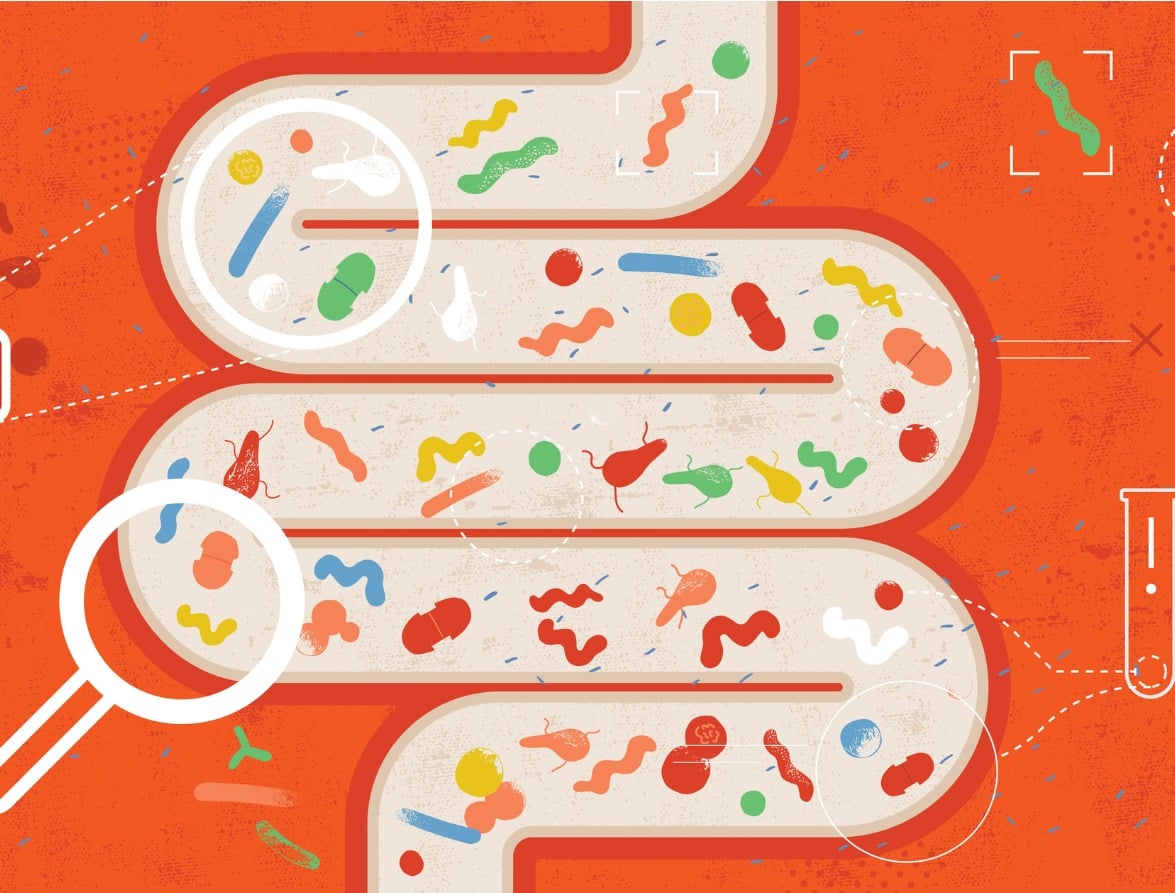Your gut health plays a crucial role in your overall well-being, impacting everything from digestion and immune function to mental health. While some factors influencing gut health are well-known, there are often overlooked aspects that can have a significant impact. In this blog article, we will delve into five positive and five negative things you might not be aware of that can affect your gut health.
5 Things You Didn't Know that Positively Affect Gut Health
When it comes to fostering a healthy gut, it's not just about avoiding the negatives but also embracing the positives. Together, we'll explore five little-known factors that can significantly enhance your gut health, from the wonders of prebiotics to the surprising mental health benefits of a thriving gut microbiome:
The Power of Prebiotics
Prebiotics are a lesser-known but essential component for gut health. These are non-digestible fibers that feed the beneficial bacteria in your gut. They promote a balanced gut microbiome, enhance nutrient absorption, and help reduce inflammation. Foods rich in prebiotics include garlic, onions, asparagus, and bananas. Including these in your diet can significantly boost your gut health.
The Magic of Fermented Foods
Fermented foods like yogurt, kefir, sauerkraut, and kimchi are packed with probiotics, the beneficial live bacteria that support digestion and overall gut health. Regular consumption of these foods can help maintain a diverse and healthy gut microbiome, improving digestion and strengthening your immune system.
The Impact of Regular Fiber Intake
Consuming an adequate amount of dietary fiber is crucial for a well-functioning digestive system. Fiber-rich foods, such as whole grains, fruits, and vegetables, promote regular bowel movements, prevent constipation, and aid in weight management. Additionally, they provide nourishment for beneficial gut bacteria, fostering a thriving gut environment.
The Mind-Gut Connection
While it's not widely known, a healthy gut positively affects your mental well-being. A thriving gut microbiome can influence your mood, reduce stress, and even lower the risk of mental health conditions. Nurturing your gut health through a balanced diet and probiotic-rich foods can be an essential part of maintaining mental and emotional well-being.
The Benefits of Proper Hydration
Staying adequately hydrated is not only essential for overall health but also for a well-functioning gut. Proper hydration helps keep your intestinal lining healthy and ensures the efficient movement of food through your digestive system. Drinking enough water supports the balance of gut bacteria and aids in the prevention of digestive discomfort.
5 Things You Didn't Know that Negatively Affect Gut Health
Maintaining a healthy gut is pivotal for your overall well-being. While some factors that affect gut health are well-known, there are several lesser-known culprits that can silently undermine your digestive system. Let’s uncover five surprising aspects you might not be aware of that negatively impact your gut health:
The Overconsumption of Ultra-Processed Foods
In our fast-paced world, ultra-processed foods often make for convenient meals, but they pose a hidden threat to your gut health. Loaded with excessive sugars, unhealthy fats, and artificial additives, these items can disrupt the delicate balance of your gut microbiome. Consuming them regularly promotes the growth of harmful bacteria and triggers inflammation, leading to digestive discomfort.
The Hidden Dangers of Artificial Sweeteners
Artificial sweeteners, commonly thought of as a healthier alternative to sugar, can have detrimental effects on your gut. Recent research has unveiled that these sugar substitutes can alter the composition of gut bacteria, favoring the proliferation of less beneficial microbes. Over time, this imbalance can lead to digestive issues and potentially impact your overall health.
Antibiotic Overuse and Gut Health
Antibiotics are indispensable for treating bacterial infections, but their excessive use can be detrimental to your gut. Antibiotics don't discriminate between harmful and beneficial bacteria, leading to an imbalance in the gut microbiome. This disruption can result in digestive issues like diarrhea and disrupt the equilibrium of your gut.
High-Stress Lifestyles
The modern, high-stress way of life can take a toll on your gut health. Chronic stress triggers the release of cortisol, a hormone that negatively affects the balance of beneficial bacteria in your gut. Moreover, a stressed digestive system operates less efficiently, potentially causing bloating, constipation, and conditions like irritable bowel syndrome (IBS).
Lack of Physical Activity
A sedentary lifestyle not only affects your physical health but also has consequences for your gut. Regular exercise has been shown to promote a diverse and balanced gut microbiome, while inactivity can slow down the movement of food through your digestive system, potentially leading to constipation and an imbalanced gut environment.
Unlocking the Secrets of Gut Health With Northeast Digestive
Awareness of these often overlooked factors that negatively impact gut health is the first step in taking proactive measures to maintain a healthy gut. By reducing the consumption of ultra-processed foods, being cautious with artificial sweeteners, using antibiotics judiciously, managing stress, and incorporating regular physical activity into your daily routine, you can safeguard and enhance your gut health. In doing so, you'll be promoting overall well-being and enjoying a more vibrant and digestive-healthy life.
Ready to take the next step toward optimal gut health? Schedule a consultation with one of our specialists at Northeast Digestive today. Your journey to a healthier, happier gut begins here.




